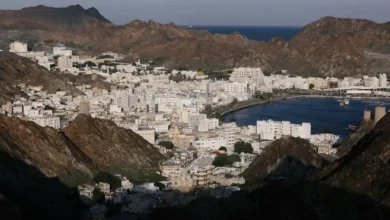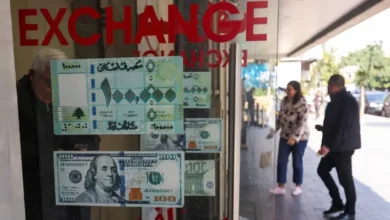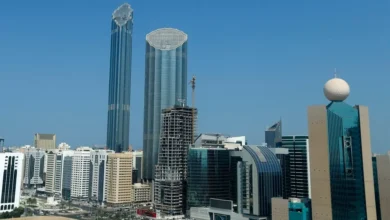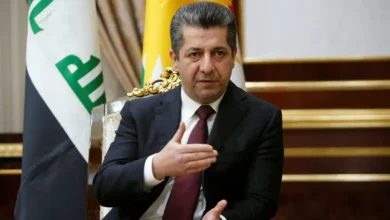How Middle East tensions are driving oil market volatility

Iran’s missile attack on Israel has heightened geopolitical risk in the Middle East, causing global oil prices to rise amid fears of supply disruptions.
US crude oil prices surged about 5 percent on Thursday, posting a third consecutive session of gains. Prices continued to rise on Friday and were on track for strong weekly gains.
Brent crude futures were up 55 cents, or 0.7 percent, at $78.17 a barrel, as of 8:31 GMT. US West Texas Intermediate crude futures were up 50 cents, also 0.7 percent, at $74.21 a barrel.
On Tuesday, Iran launched almost 200 ballistic missiles toward Israel, marking a sharp escalation in their long-standing conflict.
This came as retaliation for Israeli airstrikes that targeted Hamas political leader Ismail Haniyeh, who was killed in an explosion in Tehran in July, and Hezbollah leader Hassan Nasrallah along with Iran Revolutionary Guards’ deputy commander Abbas Nilforoushan, who were assassinated last week in Beirut’s southern suburbs.
It was Iran’s second such attack on Israel this year, after it unleashed around 300 missiles and drones in April.
Israel and the United States have vowed retribution for the attack, signaling an intensification of the conflict that could destabilize the region and impact global oil markets.
Iran, an OPEC member, produces around 3.2 million barrels per day, accounting for roughly 3 percent of global output. Israel’s military capabilities could pose a direct threat to Iran’s energy infrastructure.
Despite US sanctions, Iranian oil exports have surged this year to near multi-year highs of 1.7 million barrels per day, with Chinese refiners being the primary buyers. China has maintained that it does not recognize unilateral US sanctions.
Oil price volatility and market dynamics
Historically, Middle Eastern crises have had profound effects on oil prices. The region accounts for a substantial portion of global crude output.
Ole Hansen, head of Commodity Strategy at Saxo Bank, explained that while geopolitical flare-ups often drive short-term price spikes, long-term highs depend on the conflict’s severity and duration.
“Key drivers of volatility include the risk of a broader conflict involving major producers, potential disruption to oil infrastructure and OPEC+ intervention,” he said.
“Additionally, a weak global demand outlook may cap how far prices can climb. Without substantial supply disruptions or a geopolitical event triggering extended uncertainty, oil prices are more likely to hover in a higher range rather than skyrocket to new extremes.”
Oil demand has weakened due to a global economic slowdown, particularly in China, the world’s largest consumer, where efforts to boost activity have struggled amid a property crisis impacting consumer spending. European industry is also in decline, with recent data showing a sharp drop in factory output.
Analysts argue that while traders and speculators will profit from short-term fluctuations, ample supply from OPEC+ countries and China’s economic weakness are keeping prices in check.
“This is more about geopolitics than an actual supply crisis,” said Yousef M. Alshammari, president of London College of Energy Economics.
The Strait of Hormuz in focus
A prolonged conflict could present serious risks to global oil supplies. There are concerns that such escalation could prompt Iran to block the Strait of Hormuz.
The strait is a key logistical chokepoint through which a fifth of daily oil supply passes. It’s a critical artery for oil exports from Iran, Iraq, Saudi Arabia, Kuwait and the UAE.
“The closure of the Strait of Hormuz or even a temporary disruption would send shockwaves through global energy markets, increasing prices and creating supply bottlenecks,” stressed Hansen.
“However, the response from OPEC+, including key producers, will be crucial in stabilizing supply, with strategic reserves possibly tapped to manage short-term disruptions. Still, with the Middle East’s central role in global energy, ongoing geopolitical risks make the oil market highly susceptible to further price swings, keeping investors on edge.”
OPEC has sufficient spare oil capacity to offset a complete loss of Iranian supply if Israeli strikes take out the country’s oil facilities. However, the producer group would face challenges if Iran retaliates by hitting installations of its Gulf neighbors.
Ministers from Gulf Arab states and Iran attended a meeting of Asian nations hosted by Qatar to discuss de-escalating hostilities between Israel and Iran, three sources said on Thursday.
The Gulf Arab states sought to reassure Iran of their neutrality in the conflict on concerns that further violence could threaten Gulf oil facilities, two of the sources said.
“The potential for an extended conflict destabilizing key oil supply routes, particularly through the Strait of Hormuz, is a concern, but not in Iran’s interest,” said Alshammari. “We’ve seen attacks on oil tankers in the past during the Saudi-Houthi conflict, but the rapprochement between Saudi Arabia and Iran has stabilized the region. Disrupting the strait would harm the entire region’s economic security, something Iran wishes to avoid, as it wants to keep relations stable.”
“While tensions between Israel and Iran could spark market volatility, a direct military confrontation is unlikely, though risks to Iranian oil and nuclear sites remain unpredictable,” he added.
Geopolitical leverage and strategic calculus
Israeli officials may be minimizing the impact of Iran’s attack. Though only one death was reported, this assault caused more damage than Iran’s earlier barrage in April.
Analysts suggest Israel has four potential options for retaliating: targeting Iran’s oil production facilities, striking symbols of the regime, attacking senior Iranian government officials or hitting nuclear infrastructure.
Tehran might be betting that the US will be reluctant to see oil prices rise too high, particularly with presidential elections just a month away.
Neil Quilliam, associate fellow with the Middle East and North Africa Program at the UK-based Chatham House think tank, said this could limit Israel’s choice of targets but would not deter its resolve to strike critical Iranian assets.
“Israel is unlikely to directly target Iran’s key oil infrastructure due to its global impact,” he told Al Arabiya English. “Instead, Israel is more likely to focus on military and intelligence assets, as well as Iran’s power and communications infrastructure, with senior Iranian leaders potentially in the crosshairs, similar to Hezbollah’s.”
Asked on Thursday if he would support Israel striking Iran’s oil facilities, US President Joe Biden told reporters “we’re discussing that.”
Questions are emerging about how Iran might leverage oil markets as part of its broader geopolitical strategy amid escalating tensions.
“Iran could utilize proxy forces, such as the Houthis, to intensify attacks on oil tankers passing through the Bab al-Mandab Strait, raising the risk premium,” noted Quilliam.
“It could also encourage the Houthis to threaten Gulf states’ energy infrastructure, aiming to raise the group’s profile now that Hezbollah has been weakened, while simultaneously maintaining plausible deniability.”










